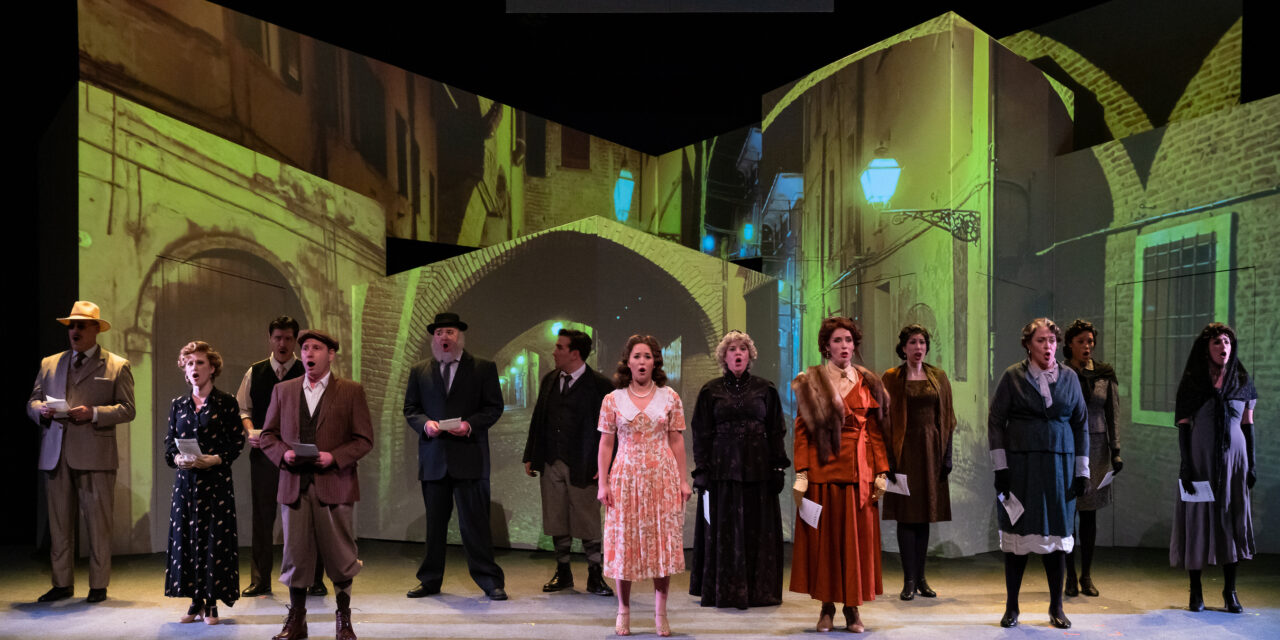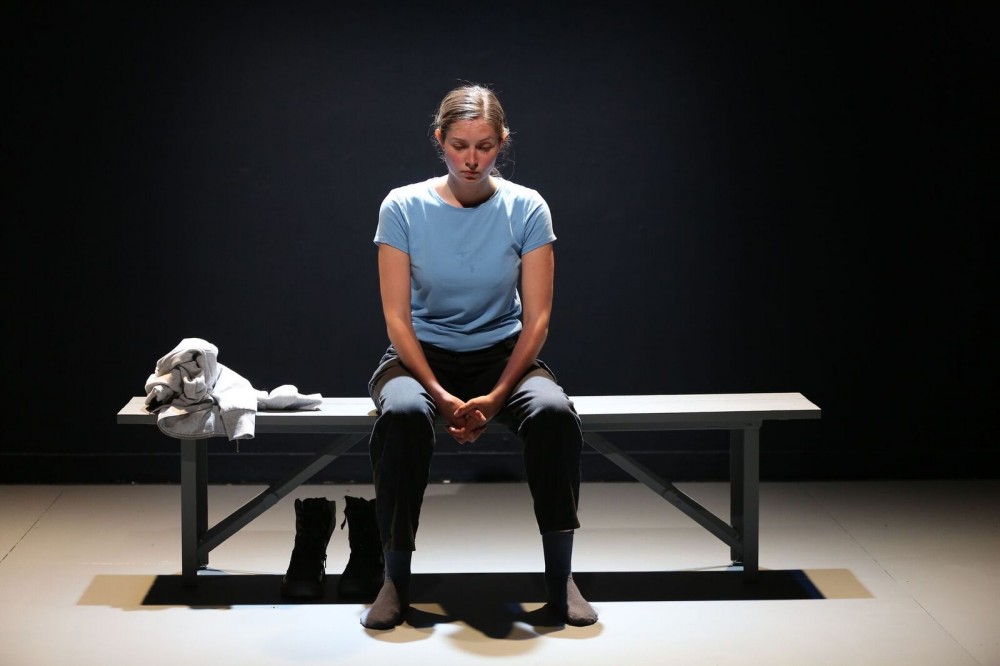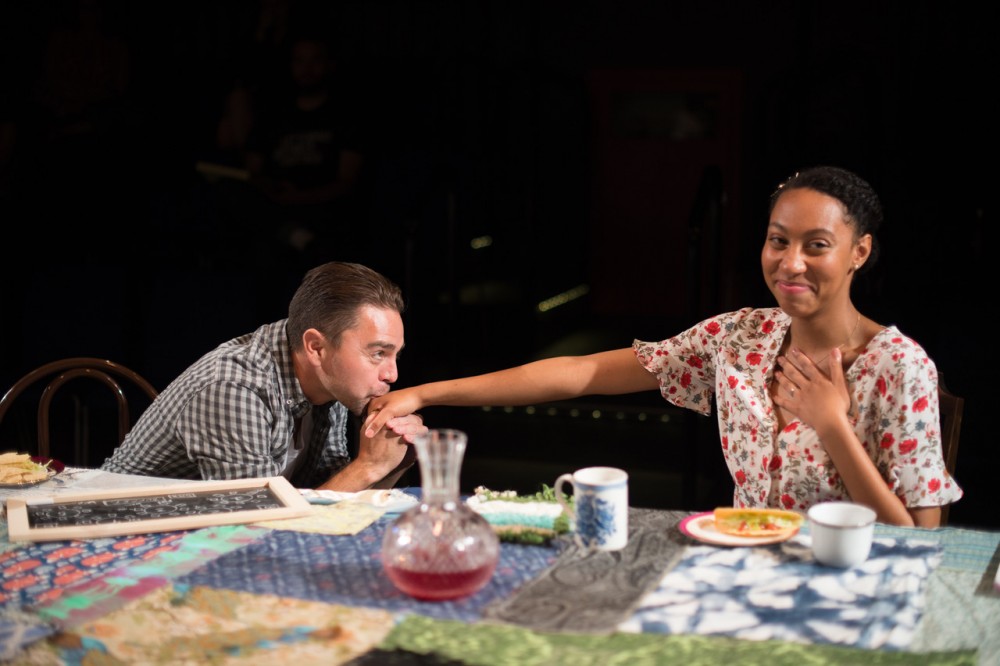By Marilyn Lester . . .
Very significantly, with an opening on International Holocaust Remembrance Day (January 27), The Garden of the Finzi-Continis, a new contemporary opera composed by Ricky Ian Gordon with libretto by Michael Korie, premiered to a sold-out audience at the Museum of Jewish Heritage in the Battery. The story is an intensely compelling one, based on the 1962 novel by Giorgio Bassani, who drew from his own life experience as an Italian Jew who escaped the Holocaust. Its themes of antisemitism, social stratification and discrimination resonate as loudly today as they did during the rise of Nazism and the horrors of World War II. New York City Opera and National Yiddish Theater Folksbiene, who co-produced, are to be commended for adapting Bassani’s source material as a stage presentation (there was also a 1970 Academy Award-winning film version). Kudos to a fine cast, a superb orchestra and all creatives who were committed to realizing this important and powerful new addition to the canon of modern opera, one worthy of being experienced on many levels.
The Garden of the Finzi-Continis is bookended by scenes in a devastated post-war Italy of the mid 1950s. The story is a memory piece, with the protagonist, Giorgio, visiting the ravaged northern Italian town of Ferrara, his former home and the home of the aristocratic Finzi-Contini family. With a time jump back to the rise of Mussolini and Fascism in the late 1930s, it is here that members of the Jewish population of the town are forced to confront their cultural identity, as Italy’s alliance with Germany brings about an increasing series of anti-Semitic racial laws. Like German Jews who considered themselves Germans first, the Finzi-Continis, with a lineage far back in time, consider themselves firmly Italian, and thus exempt from the fate of other less-established “newcomer” Jews. The Finzi-Contini denial of their inclusion in the Nazi pogroms is their downfall and culminates in their extermination in 1943, along with all of the other Jews of Ferrara.
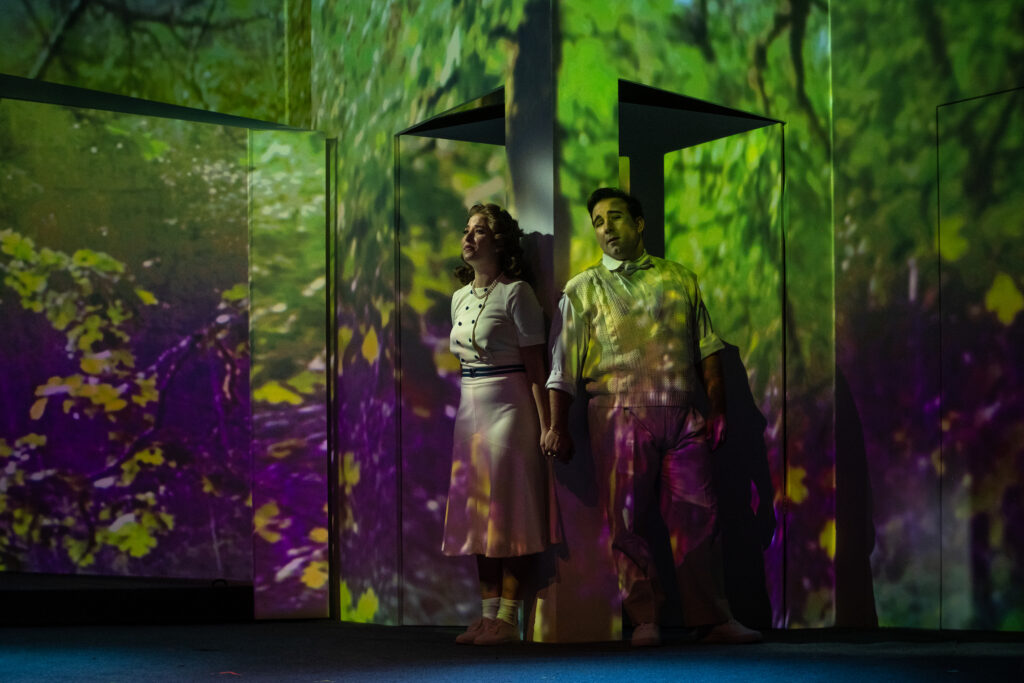
At the core of Korie’s libretto is the story of Giorgio (Anthony Ciaramitaro) and his long-harbored love for the beautiful, regal Micòl Finzi-Contini (Rachel Blaustein). But Giorgio’s family and other Jews in Ferrara are far-removed from the Finzi-Contini social class—and no longer permitted to associate with Christian Italians, their options for social intercourse diminish. Graciously, the Finzi-Continis open their garden and its tennis courts to them. In this rarified enclave, Giorgio befriends Malnate (Matt Ciuffitelli), and Micòl’s increasingly unwell brother Alberto (Brian James Myer), who harbors secret feelings toward Malnate. Although Micòl gives Giorgio attention, it’s her ultimate (and calculated) rejection of his love for her, in favor of Malnate, that spurs him and his brother Ernesto to escape and ultimately survive. Into this mix are family scenes in which Giorgio’s mother (Mary Phillips) and father (Franco Pomponi) recognize that class difference counts and who arrange for their two sons to escape to Switzerland.
All of this is played out on a starkly bare stage with large, angular white modules moved as required (seamlessly executed). This approach, conceived by Richard Stafford, required that projections do all the heavy lifting of conveying context. A leaning toward minimalism in contemporary opera aside, Stafford’s vision could have underscored the raw reality of the Holocaust and the Jewish plight, but that opportunity was missed in this particular production. And, as per the trend in modern opera, Gordon’s music is essentially non-melodic (but not unpleasant), and vocal delivery mainly recitative. A second act with some mellifluous passages allowed for greater vocal exploration. What added consistent brilliance to the score was astute and often beautiful orchestration by Gordon and Bruce Coughlin. A full orchestra, under the baton of Maestro James Lowe, brought the score to life with authority. The downside was the orchestra’s placement on the audience level, stage left, which created sound imbalance in an already acoustically problematic (“dead”) auditorium.
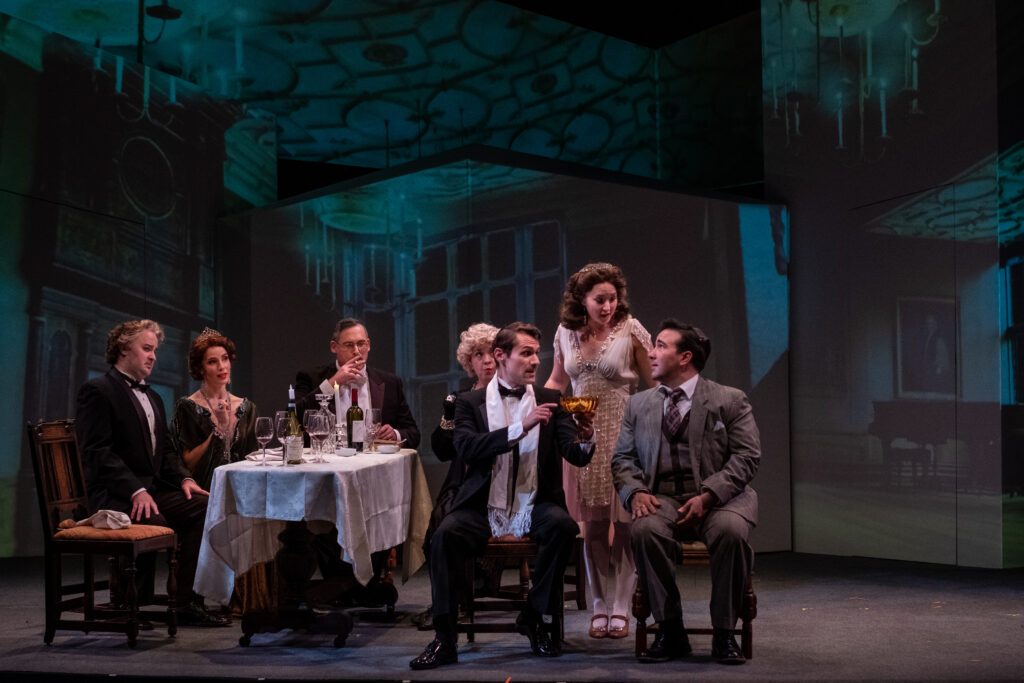
At three hours running time, despite magnificent singing by an engaging cast, there’s fat that could have easily been cut from the libretto, sharpening and intensifying crucial plot points. Limp and sometime heavy-handed direction by Michael Capasso and Richard Stafford also failed to make the most of key thematic and symbolic elements in the story, denying a powerful dramatic arc. More forceful direction would have also bolstered uneven acting abilities among the cast. Most effective were scenes in which the ensemble appeared—especially as a ghostly chorus—adding heft to the staging.
The excellent cast also includes D’Marreon Alexander, Robert Balonek, Adam Cioffari, Peter Kendall Clark, Dani Goldstein, Spencer Hamlin, Kristee Haney, Rebecca Hargrove, Sarah Heltzel, Adam Klein, Meredith Krinke, Melanie Long, Violet Paris, Gabe Ponichter, Sami Sallaway, Drew Seigla, Markos Simopoulos, Rosy Anoush Svazlian, Tim Roller, and Rachel Zatcoff. Kudos also go to production design by John Farrell, costume design by Ildikó Debreczeni and lighting design by Susan Roth.
The Garden of The Finzi-Continis plays through Sunday, February 6. Tickets for this limited engagement are available at NYTF.org or by calling the box office at 855-449-4658. For additional information call 212-655-7653.
Head Photo: Steve Pisano


